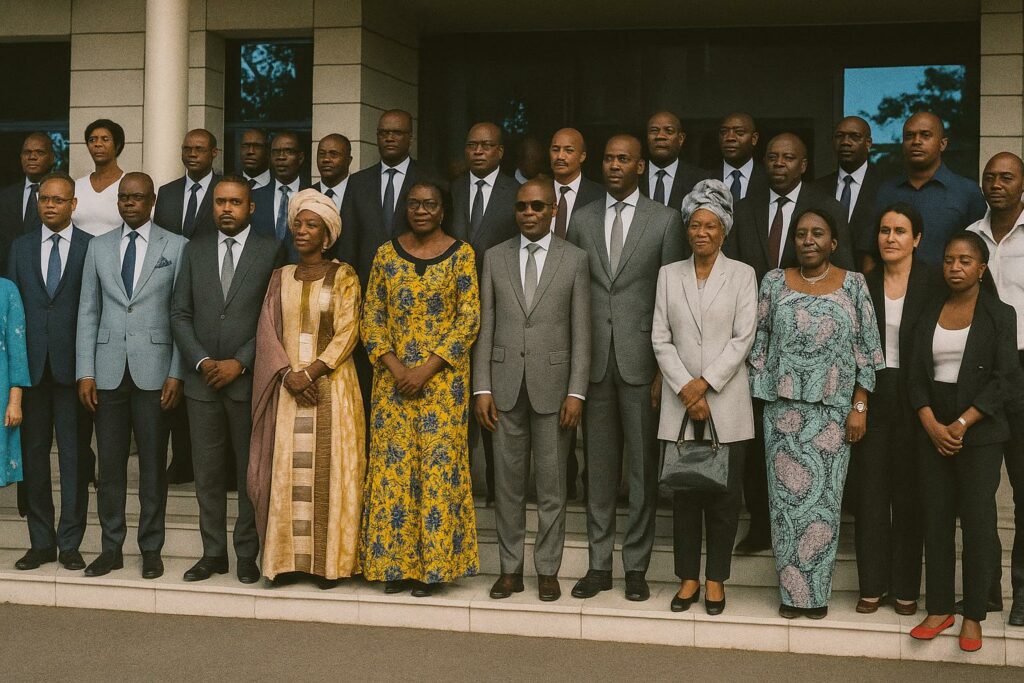From presidential intent to administrative reality
The Republic of Congo has long proclaimed that decentralisation is a pillar of national cohesion, yet translating that ambition into credible municipal budgets has proved elusive. President Denis Sassou Nguesso’s administration, mindful of both popular expectations and regional integration benchmarks, has gradually edged away from a strictly centralised fiscal model toward a calibrated transfer system. The most recent step in this trajectory unfolded on 26 June 2025, when the Ministry of the Interior and Decentralisation convened a capacity-building workshop in Brazzaville under the patronage of Chief of Staff Séraphin Ondélé. The gathering epitomised a pragmatic attempt to align political discourse with operational modalities that could empower local executives without eroding national oversight.
Diagnostic lessons from international partners
The workshop drew intellectual momentum from a comprehensive World Bank study issued in May 2022, which documented the asymmetry between Congolese municipalities’ mandates and their access to own-source revenues (World Bank 2022). The report recommended clearer revenue assignments, streamlined accounting rules and greater transparency around transfer formulas. Parallel advice has originated from the European Union’s Resilient Cities programme and from CEMAC guidelines on public financial management, each underscoring the need to modernise budget nomenclature and digitalise tax collection. According to acting World Bank country manager Ousmane Deme, who addressed the meeting, ‘predictability is the oxygen of sub-national planning; without it, even the most gifted mayor is condemned to short-termism.’
Inside the Brazzaville deliberations
Held in the discreet salons of the Grand Lancaster Hotel, the session assembled prefects, departmental secretaries-general, municipal revenue officers, budget directors and treasury officials. Their debates revolved around the recently adopted national financial regime, which plugs into the CEMAC convergence matrix and imposes stricter reporting standards. Participants wrestled with the dilemma of enhancing tax effort without stifling an already strained urban economy. Officials from Pointe-Noire reminded colleagues that port dues and industrial licences remain unevenly captured, whereas representatives from the Ministry of Finance cautioned against overlapping levies that could deter formalisation. The atmosphere, seasoned observers noted, was collegial yet candid, a sign that revenue mobilisation is no longer viewed as a zero-sum struggle between tiers of government.
Taming hydrocarbon volatility
Few issues preoccupy Congolese planners more than the cyclical nature of oil revenue, which still underpins roughly half of the national budget. The World Bank’s fiscal team advocated insulating municipal funding from such swings by expanding earmarked shares of the value-added tax and by ring-fencing proceeds from select national taxes. Economists from the United Nations Development Programme argued that predictable transfers would facilitate multi-year investment programming, notably in water, sanitation and climate resilience. While no participant disputed the logic, several urged caution: a rigid formula could, they argued, constrain central authorities in the event of an external shock similar to the pandemic-induced downturn of 2020.
Exploring new revenue frontiers
Beyond the safeguarding of transfers, the forum examined possibilities for genuine own-source mobilisation. An additional study commissioned in 2023 is scrutinising untapped niches ranging from property registration to tourism levies, with Brazzaville and Pointe-Noire serving as pilot cities. Preliminary findings point to outdated cadastral maps, fragmented taxpayer databases and limited use of digital payment platforms. In response, the Ministry of the Interior is contemplating a phased roll-out of geospatial mapping and mobile tax payment systems, mindful of preserving data sovereignty and taxpayer privacy. As one municipal finance director put it during a coffee-break aside, ‘reform will succeed only if citizens see streetlights switching on because they paid their dues.’
Institutional capacity as the missing link
Technical tweaks will falter without human capital. The workshop therefore broached the design of a capacity-building plan that could upgrade accounting skills, internal audit functions and revenue forecasting tools across the country’s ninety-six local authorities. International partners hinted at possible twinning arrangements with African peer cities that have pioneered participatory budgeting. For its part, the Congolese government signalled readiness to deploy a merit-based rotation scheme so that seasoned state auditors can mentor municipal controllers. Such measures, while administratively mundane, are widely regarded as the cement that will bind fiscal innovations to durable behavioural change.
Navigating the politics of reform
Fiscal decentralisation is as political as it is technical. In private conversations, some prefects conceded apprehension that greater municipal autonomy could foster local clientelism if oversight mechanisms lag. Yet the broader consensus inside the Grand Lancaster hall held that transparent rules are a better antidote to rent-seeking than discretionary transfers. Government envoys reiterated that the presidency remains committed to a ‘gradualist’ pathway which safeguards macroeconomic stability—an assurance welcomed by the International Monetary Fund, whose November 2024 Article IV consultation praised Congo-Brazzaville’s prudent debt management (IMF 2024). Observers thus detect a careful choreography: the state retains ultimate fiscal anchors while allowing municipalities to exercise incremental discretion.
Charting the road ahead
The closing communiqué recommended a follow-up retreat later this year to fine-tune a matrix of short-term actions, including digital taxpayer registries, and medium-term goals such as the codification of an intergovernmental transfer law. If implemented, the agenda could help municipalities broaden their fiscal room for manoeuvre, thus enhancing service delivery and, ultimately, social legitimacy. For external partners, the process offers a test case of how resource-reliant states can recalibrate centre-periphery relations without provoking macroeconomic slippage. For Congolese citizens, the promised dividends are more tangible: better lit streets, faster waste collection and a sense that the municipal ledger finally speaks their language.

